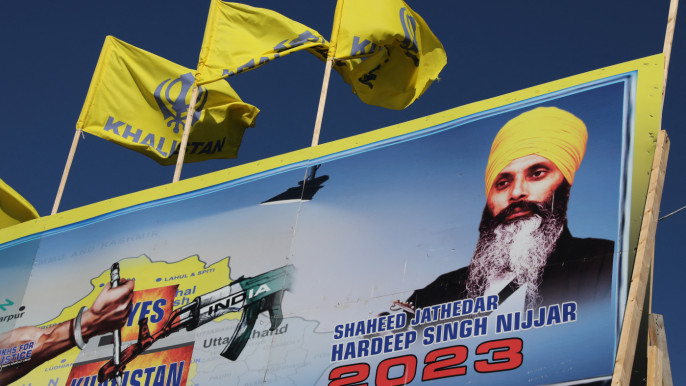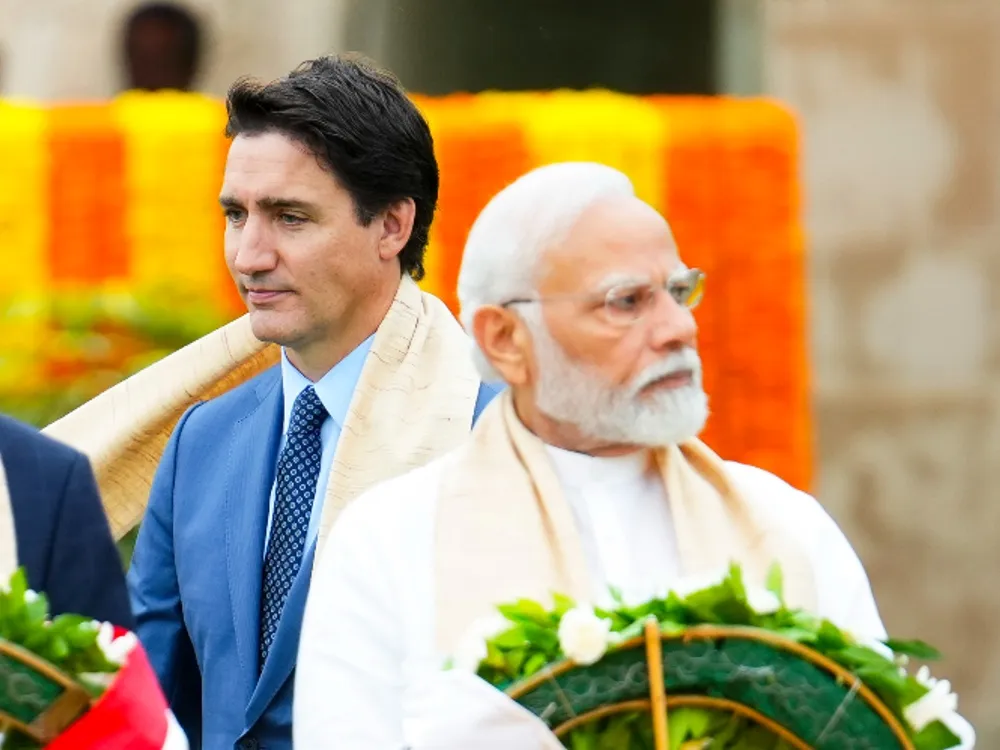Sikhs and the Interplay Between India, and the Anglo-Saxon Double Standards and Hypocrisy
Simultaneously, the Anglo Saxon West, driven by its economic objectives, has enticed the Indian populace on a grand scale by extending offers of improved economic prospects.

Dhaka: The Western alliance, under U.S. leadership, has conveyed a clear message that India occupies a pivotal role in the Indo-Pacific Strategy plotted for the containment of China. For India, this represents an opportunity of the millennia to bolster its defence capabilities and fortify its economy. It is worth noting, however, that this strategic pursuit carries the inherent potential to escalate regional tensions and conflicts.
In light of this, India’s ambitious political echelon has intensified its efforts on multiple fronts, encompassing diplomacy, security, and economic development, forging a closer partnership with the Western powers. This endeavour has garnered significant support from the Indian diaspora, a community that tactically seeks not only to bolster its rights in Western countries as ethnic population but also to align with India’s geopolitical interests.
![Young members of the Pakistani Sikh minority hold placards during a protest against India over Nijjar's murder in Canada, in Lahore, Pakistan, 20 September 2023. India and Canada are caught in a diplomatic dispute over the alleged involvement of Indian authorities in the killing of Sikh activist Hardeep Singh Nijjar, who allegedly had links with Khalistan movement, in Canada. The Sikh independence movement, known as the Khalistan movement, seeks to establish a separate homeland for Sikhs. "RAW" appearing in placards refers to Research and Analysis Wing, the foreign intelligence agency of India. [EPA-EFE/BILAWAL ARBAB]](https://southasiancorrespondent.com/wp-content/uploads/2023/09/Indian-protest-800x450-1.jpg)
Simultaneously, the Anglo Saxon West, driven by its economic objectives, has enticed the Indian populace on a grand scale by extending offers of improved economic prospects. In this fashion, the Western powers, after strategically seeding political complexities in India and its surroundings during the mid-20th century, vigilantly nurture these complexities, preserving them as potent instruments to be wielded when they align with Western geopolitical interests. Among these crises, the Sikh separatist movement stands out as a critical political minefield originally laid during the British colonial era.
Following Justin Trudeau’s startling assertion, it becomes evident that the Sikh community, constituting a modest 1.7% of India’s populace, now occupies a focal point within a geopolitical manoeuvre spearheaded by Canada. This intricate manoeuvre enjoys veiled support from the United States, the United Kingdom, Australia, and New Zealand, collectively operating under the umbrella of the Anglo-Saxon intelligence alliance referred to as ‘the Five Eyes.’
This scenario underscores a significant message: If India seeks to forge a partnership with the Western powers for national development, it must acknowledge that it cannot exercise full strategic sovereignty without the approval of the Anglo-Saxon coalition. In this context, Indian intelligence operations within the framework of the Five Eyes will be subject to Western scrutiny, differing from Western intelligence practices.
Moreover, this situation reflects a form of Anglo-Saxon exceptionalism, where the Anglo-Saxon believes it possesses a divine authority for global policing, allowing for extrajudicial actions anywhere. India may find itself unable to question these actions, even when they defy conventional logic and the principles of humane rationality.
What prompts Western strategists to select Canada as a key player in their geopolitical calculus? There are several compelling factors, and I will elucidate the three most significant ones.
First and foremost, Canada’s appeal lies in its leader, Justin Trudeau. He embodies the principles of progressivism, champions liberal ideologies, and harbours ambitious aspirations to promulgate these ideals on a global scale. His leadership is ideally suited to counter the prevailing rightist Hindutva ideology within the Indian state apparatus.

The second rationale centres around Canada’s historical role as a sanctuary for a wide spectrum of radical and fundamentalist ideologies, fostering an environment where such thoughts and animosities have thrived. It has effectively transformed into a hub of fundamentalist ideologies, sheltered under the Western geopolitical system, marked by double standards and inherent hypocrisy.
The third crucial element in the strategic decision to collaborate with Canada, with the aim of restraining Indian intelligence activities, stems from the conviction that engaging with Canada is a more secure alternative when compared to countries such as the United States, Australia, New Zealand, and the United Kingdom. This is especially relevant within the context of the Indo-Pacific strategy.
The West, under the leadership of the Anglo-Saxon powers, is engaged in a complex strategic manoeuvre in South Asia, akin to a high-stakes chess game unfolding on the global stage. Despite the considerable geographical distance, the Anglo-Saxons hold vested interests in this region due to its profound strategic importance, intricate political dynamics, and abundant economic potential.
Their overarching objective, ostensibly framed as safeguarding the freedom of navigation in the waters of Asia, is primarily centred on containing China and influencing Chinese interactions with regional actors like India. In light of these developments, it is imperative for the nations of South Asia to raise their voices against the apparent double standards and hypocrisy inherent in these Western policies.
South Asian countries must unite and unequivocally convey that the region shall not be used as fertile ground for exploitation or as a launching point for actions against China. Failure to do so may result not in sustainable progress but, rather, the perpetuation of neo-colonial burdens that will be inherited by future generations.
Written by Rajeev Ahmed
Geopolitical Analyst, Strategic Thinker and Editor at geopolits.com




